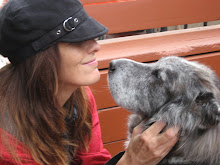








Today Simon, Jiimmy, and Gabral talk about culture and tribes in Kenya. 43 tribes. Five groups, or language families: Bantus, Nilote, Cushites, Arabs, Indians/Kenyans Europeans.
But their discussion leaves me wondering. Contemplating.
How do you begin? A modern life when your origins as a people are present, and changing faster than time can support them? Gabral talked about his the history of his tribe. Nomadic hunters that came from Ethiopia and settled near Tsavo East. They specialized in elephant hunting, using a bows with poisoned arrows. They walked like bushmen, staying with their kill until they had finished eating all the meat. They made simple shelters using elephant and buffalo hides with grass-thatched roofs.
In 1977, hunting outlawed in the Tsavo National Parks. Some of the men were absorbed as Kenyan Wildlife Service rangers, their expert tracking skills utilized at their best. But what of all the others? Hunting no longer an option. How would you truly change your perspective and lifestyle so abruptly--so drastically? How is it that people change? What is the timeline of transformation? A person would be lost. A people might be lost. What had seemed so true, not a dream of life past and times gone. Is their resentment? Anger? I imagine so. The difficulty of culture and a changing planet.
He also speaks about marriage--and how when a man chooses a woman, he must still present the family with beer and meal! A special beer called dadi made from aloe and honey. And their religion, a mix of Christianity and Islam, is worshipped under a tree.
Difference like this are gifts to us. Reminders to remember the diversity of this world. The beauty of it all.
But the ultimate question. Advancement, education, and technology. How does it impact us all? How does it change our hearts?
I am also struck by the recent idea of polygamy in some tribal cultures here. The practice seemed to end partly for economic reason--more than one wife is just too expensive! Education. Economics. A wild and scary possibility for views on marriage and gender bias. What are the views of modern Kenyan women and their role now? I wish I had more time. I have many questions yet to be answered. I hope someday to understand more fully cultural intricacies here.
But the common thread that seems to tie Simon, Jimmy, and Gabral together in their talk is the pride. Regardless of tribe. History. They came together representing our humanness. Proud. Strong. Compassionate. Willing to look forward.
And for this, I am grateful to see.
The "Almost" Nature Walk
We try to go out with the guards and Simon on a nature walk to identify local plants and animals. All who work at Camp tsavo are extremely interested in the wildlife and conservation. Finally, we get to walk and experience the nearby area! Yipee!
As we get out of camp, we look down the road. Our hearts fall.
Nature walk? Nope. Two elephants block our way. There will be no walking today!
But we visit the museum instead. Skulls of every kind. A giant elephant skull. The long vertebrae of the twiga. Horns from gazelle. Swooping horns of the kudu. Tall, straight, spear-like oryx horns. The one-wave of impala horns. Hartebeest horns swoop out like two hands in support. Zebra. We learn that they have teeth on their upper lip for grinding and canine teeth on the lower jaw for defense. A moth lays its eggs on the horns of various skeletons. The moths eat the carotene sheath covering the horns, leaving secretions that look like long rusty tubes.
Poisonous creatures in jars. Snakes. Scorpions. Simon tells us of how he got bit once by a scorpion while changing a tire out in the bush. He picked up a rock in the dark. Zapp! A bite on the hand. Pain instantly traveling up near the lymph nodes under his arms. Fever. Electrical sparks near bite for 24 hours! Ouch. We hear a story of a spitting cobra here in the shower at camp a few months ago. Glad it wasn't this trip! Hiss...
So much to learn in this wild and sacred place. Even more reason to return!


No comments:
Post a Comment